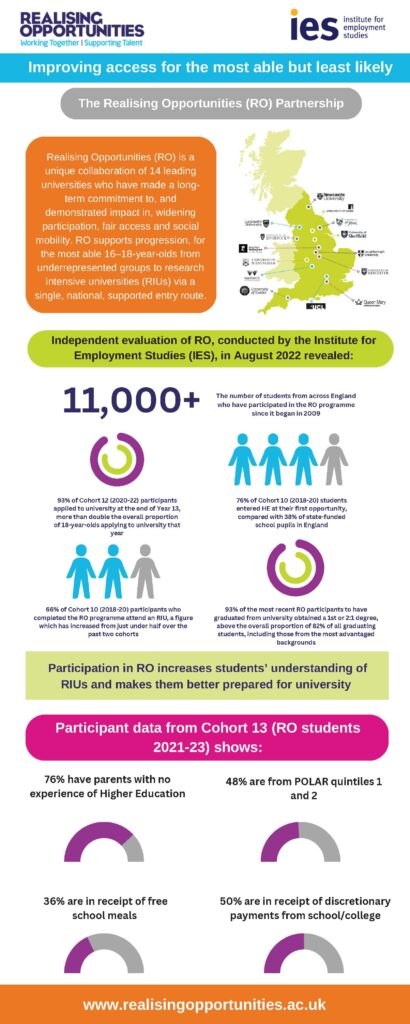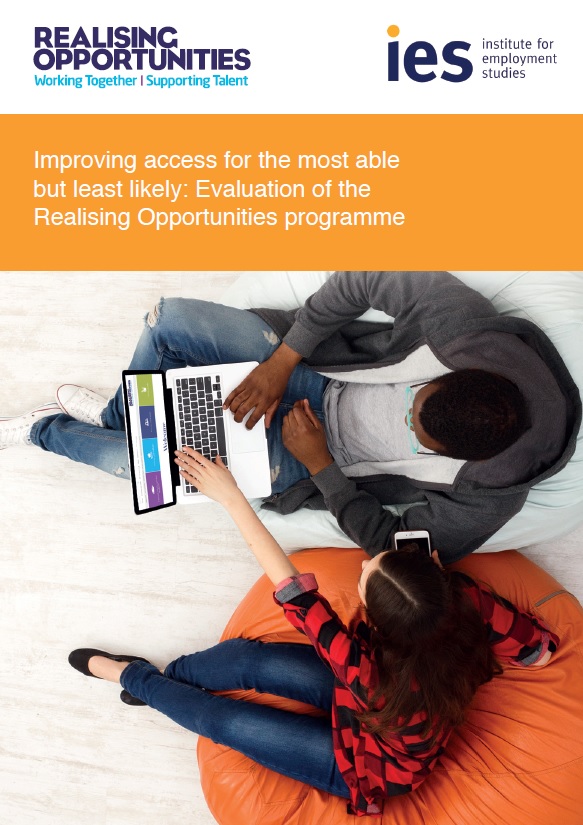
Research and Evaluation
RO has a robust evaluation framework in place to build an evidence base for the work of the Partnership. The framework is focused on gathering a mix of qualitative and quantitative information and evidence from students, teachers, parents, Higher Education Institutions, the national pupil database and UCAS.
The Institute for Employment Studies (IES) independently evaluates the RO programme.


“Monitoring and evaluation have been at the forefront of Realising Opportunities since the Partnership was established. Our external evaluators’ recent report provides evidence that we continue to target the most able, least likely students and raise aspirations towards and support progression to Higher Education, in particular to research intensive universities.”
– Suzanne Cholerton OBE
Chair of Realising Opportunities
Emerita Professor at Newcastle University
Evaluation reports
For the RO Partnership’s comprehensive evaluation and impact reports please click on the resources below.




